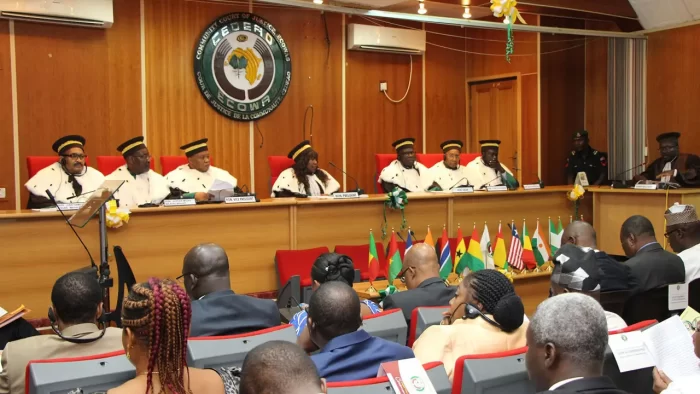Breaking News
ECOWAS Urges Reform of Islamic Schools to Curb Terrorism and Radicalisation in West Africa
At a regional conference in Abuja, ECOWAS President Dr. Omar Touray urged the modernisation of traditional Islamic schools to curb terrorism, extremism, and youth radicalisation across West Africa and the Sahel.

The Economic Community of West African States (ECOWAS) has called for the modernisation of traditional Islamic (Qur’anic) schools as part of a wider effort to combat the growing threat of terrorism and violent extremism across the region.
President of the ECOWAS Commission, Dr. Omar Touray, made the appeal on Thursday in Abuja during the West African Islamic Conference on Security and Governance, themed “The Role of Islamic Organisations in Countering Terrorism and Violent Extremism in West Africa and the Sahel.”
Touray stressed that improving the condition of these schools — including the welfare of students and teachers — was key to addressing street begging, child abuse, and the vulnerability of children to extremist recruitment.
“The situation of the traditional Qur’anic schools is the focus of our preventive action against radicalisation and violent extremism in this conference,” he said.
“We need to improve and modernise this school system and convert them into conducive and formalised centres of learning and economic empowerment.”
According to him, millions of young people across West Africa attend these schools, which remain largely informal and under-resourced, leaving students and teachers exposed to exploitation by terrorist groups.
Touray noted that terrorism and violent extremism have deeply impacted the region’s socio-economic stability, with Africa now emerging as the new global hub of terrorist activity, according to the 2025 Global Terrorism Index (GTI) Report.
“Although prevention is better than cure, we are at a stage where we must work both to prevent extremism and tackle terrorism wherever it occurs,” he added.
“In a region with a youthful population, it is important to pay attention to the situation of these youths and channel their energies to positive activities.”
He explained that the conference aligns with the ECOWAS Action Plan Against Terrorism, which promotes both kinetic and non-kinetic (carrot and stick) strategies and engages multiple stakeholders from government and civil society.
“We are pleased to see that the custodians of these traditional Qur’anic schools have come forward to take the lead in their modernisation. Supporting their initiatives complements our national and regional efforts,” Touray said.
Also speaking, the Emir of Kano, Alhaji Muhammadu Sanusi II, described the event as “the beginning of a new era of cooperation” in the region.
“Let us strive to create a region where every individual can live in peace, security, and dignity. Let us work together to build a brighter future for our children and our community,” he urged.
Similarly, Dr. Mohamed Ibn Chambas, the African Union’s High Representative for Silencing the Guns, disclosed that more than 40 million children in West and Central Africa remain out of school, while terrorism-related deaths have increased by 10 percent in recent times.
Chambas, represented by Amb. Abdel-Fatah Musah, said the conference aimed to produce a regional action plan for Islamic organisations to help counter terrorism and extremism through education and peaceful engagement.
“Let us empower Islamic organisations to promote a culture of peace, tolerance, and coexistence,” he said.
The conference was organised by Jam’iyyatu Ansariddeen Attijjaniyya, in collaboration with ECOWAS, and featured participants from the African Union, United Nations agencies (UNICEF, UNESCO), and Interpol, among others.
Opinion Nigeria News










